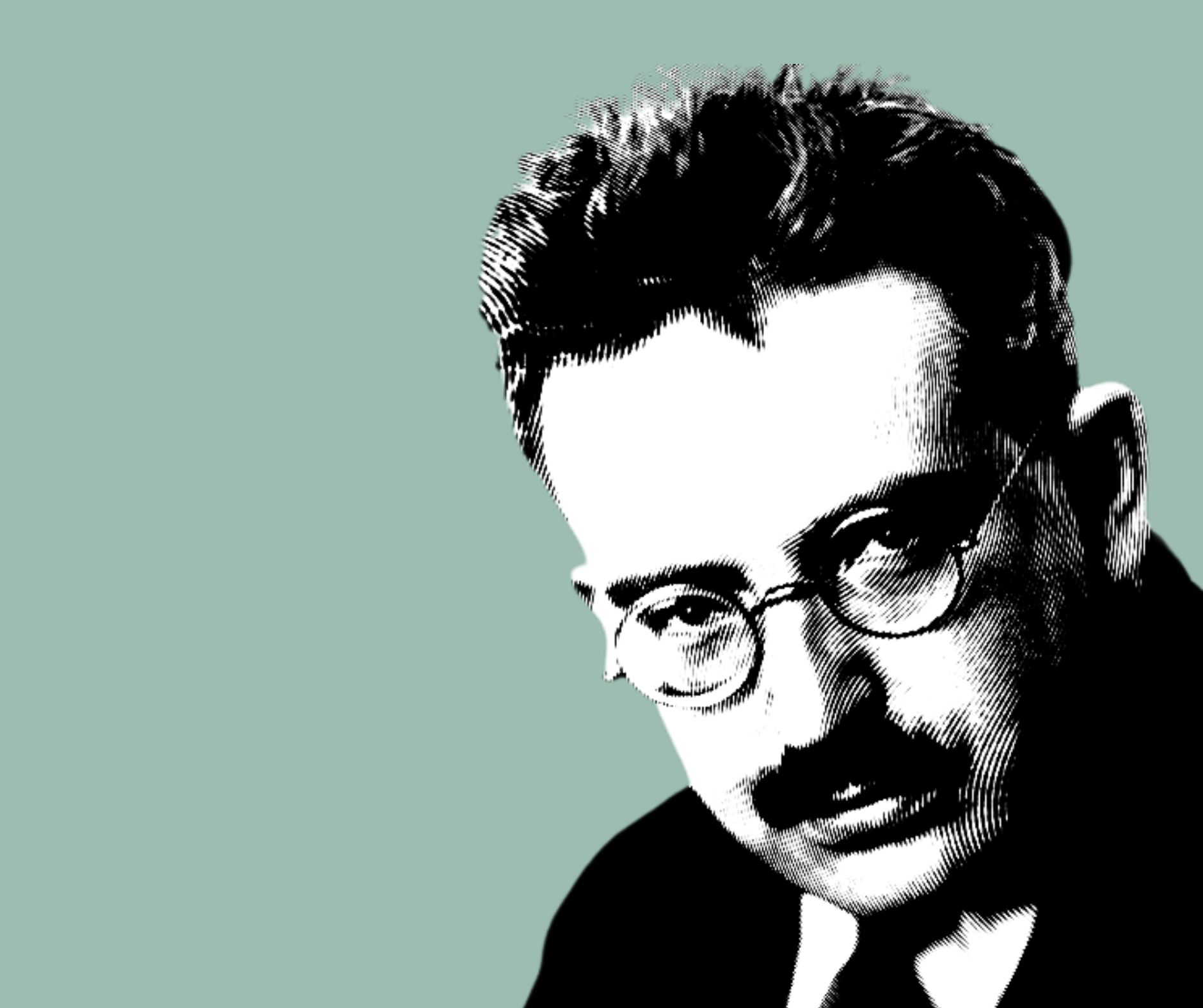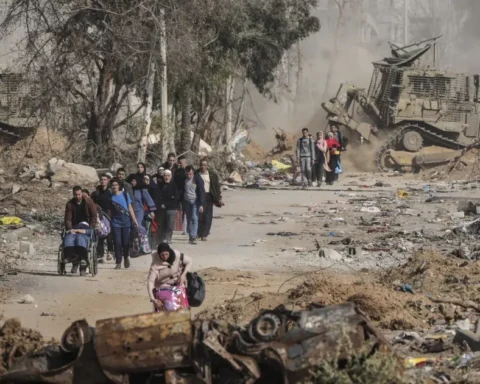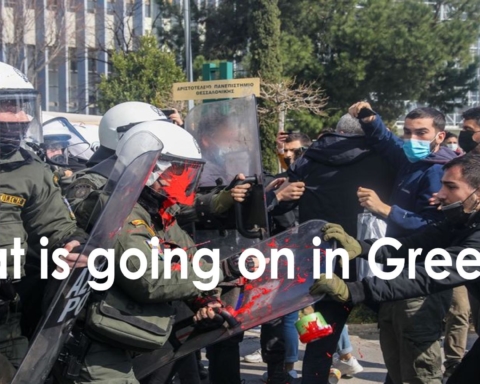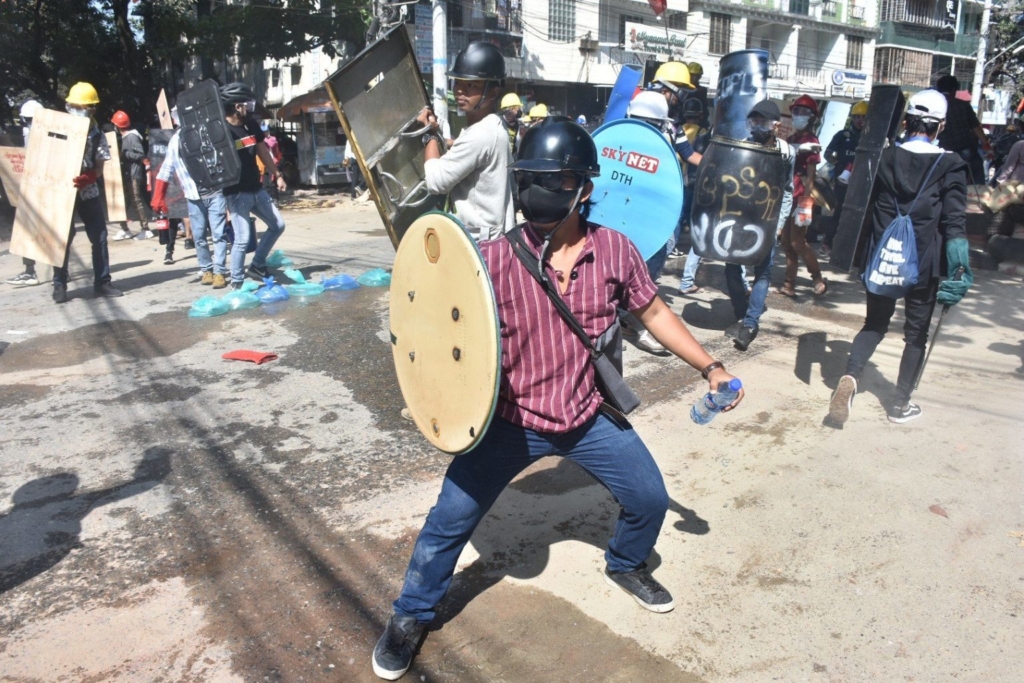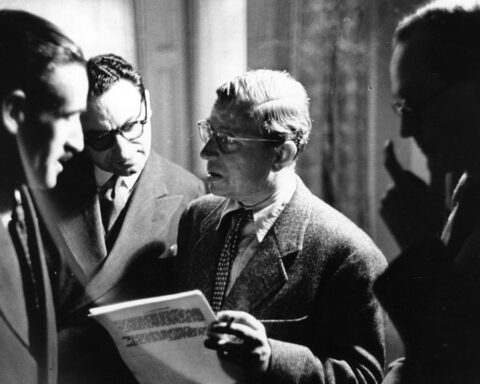THIS IS THE 36th in a series of dialogues of Brad Enans from Los Angeles Review of Books with artists, writers, and critical thinkers on the question of violence. This conversation is with James Martel, professor of political science at San Francisco State University. He is the author of seven books, the most recent of which are Unburied Bodies: Subversive Corpses and the Authority of the Dead (Amherst College Press, 2018) and The Misinterpellated Subject (Duke University Press, 2017). He has also written a trilogy of books on the life and works of Walter Benjamin.
BRAD EVANS: For those of us who remain deeply concerned with understanding the worst episodes in human history, the life and work of Walter Benjamin still appear all too resonant. This in part has something to do with the tragedy of what he came to represent, along with the undoubted brilliance of his insight and challenges to political dogmatism. What is it about Benjamin that captures your attention as an author and critic?
JAMES MARTEL: I think that Benjamin has never been as relevant to questions of politics as he is today with the exception of his own lifetime. As I read him, Benjamin offers one of the best explanations both for the ongoing resilience of capitalism, despite all of its predations and all the instability that it creates, as well as the connection between fascism and liberalism that we are seeing being expressed today. He also offers, I think, the best way to understand how to address our contemporary moment and how to resist and upend capitalism, liberalism, and fascism all round.
In my view, Benjamin’s understanding of what he calls mythic violence is the key to understanding all of these questions. Mythic violence is Benjamin’s term for the way that illicit economic and political power has asserted itself over all human life, projecting a form of authority out into the world that then becomes accepted as reality itself. It is mythic because there is no true or ontological basis for the powers of liberalism and capitalism; its right to rule is self-proclaimed and then naturalized so that it becomes seen as fated and inevitable. It is violent because, without a genuine basis for its authority, mythic violence must endlessly strike out, killing and hurting over and over again to establish its power and even its reality.
In describing mythic violence, I think it’s very important to remember that this doesn’t always refer to actual physical violence per se. The German term that we translate into English as “violence” in Benjamin’s essay “Critique of Violence” is gewalt, a word that may be better translated as force or projection. This is important because it shows first of all that a lot of what Benjamin calls mythic violence is not actually always literally violent (although, as already noted, literal violence is a critical part of what does). Mythic instantiations such as that are violent in a much deeper sense with physical violence being only the ultimate and last resort in their arsenal. But it is also important to note that Benjamin is not against responding to mythic violence with an answering form of physical violence at times. In the “Critique of Violence,” he tells us that even so seemingly clear a commandment as “thou shalt not kill” does not mean that we can never kill. It means, as he tells us, that we must struggle with the meaning of that commandment both separately and together and at times ignore or abandon it (that is to say to commit violence but in a way that sits squarely on our own shoulders, in a way that can’t be pawned off as “following orders” or obeying dictates from God or some other transcendent form of authority).
If we keep these two things in mind (that the state and capitalism are not always physically violent and that the resistance to these things can itself be violent at times) it helps to specify what Benjamin means in terms of a critique of and resistance to modern forms of mythic violence. The key thing to resist is not physical violence per se but rather projections of some kind of external source of authority (whether it is God or gods, nature or some mystical origins) which become the basis for illicit and anxious — hence often physically violent — forms of control.
What seems important to recognize here is how these categories, most notably concerning our allegiance to the mythical order of things, are applicable to both leftist and conservative ideologies, which history shows can author the most extreme violence.
For Benjamin, without an understanding and critique of mythic violence, any would-be vanquisher of capitalism and liberalism will swiftly become co-opted into the very same political and economic forms that it opposes, ultimately replacing one form of mythic violence with another. In Benjamin’s view, the left itself is far from immune from projections of authority (and anxious and violent ones at that). Even so, there is a key difference between the left and the right for Benjamin insofar as the right is based on nothing but mythic projection, projections about racial purity, ancient (false) forms of authority and hierarchies and so on, whereas the left tends to seek to denaturalize these relationships for the sake of a different and better form of political life. Benjamin speaks of a political and aesthetic form that is “useless for the purposes of fascism,” which means that it does not allow for the sedimentation of mythic projections. Instead of such projections, Benjamin looks to local and episodic forms of collective decision making, akin to what he calls “pure means” (that is to say, forms of politics that are not related to ends or teleologies which are invariably mythic).
Such a political form would indeed be useless for the right insofar as it denies and undermines precisely what the right is based on even as it is useful for a left that sought to discern political forms that do not reproduce mythic violence. This discerning mechanism, one that allows us to distinguish between what is mythic and what is not, determining what comes from false projections onto externalities and what comes from within our own communities, is, I think, the key political insight that Benjamin offers us for our own time.
While he wasn’t the first to ask what makes humans violent toward each other, we owe it to Benjamin for raising in union the two most pressing of all questions. Namely — “what time are we living in”? And “how can we develop a critique of violence adequate to these times”? What do these two questions say to you in the context of his legacy?
I think we are living in a time when the contradictions of mythic violence are perhaps especially legible in a way that has not been the case since Benjamin’s own time. More precisely, these contradictions are more visible in the West and the North; even in the richest and whitest of communities, the conflation between fascism and liberalism, the violence that undergirds both systems, has become particularly evident even to those who would prefer not to be reminded of this. In much of the Global South and in communities of color and poor communities within the West and the North as well, that violence has always been plainly visible (and by design).
In my view, Benjamin helps to explain why the neoliberal order seems to be collapsing into a fascist one. For Benjamin, liberalism and fascism are not as distinct as they are usually considered to be (at least by liberals and fascists!). It’s not that liberals and fascists are somehow in secret league with one another; they don’t have to be for the homeostasic nature of the systems of mythic violence to function. All that is required is the common mythic form itself and the deep anxieties that this produces in the system. As the inequalities fomented by neoliberalism become increasingly apparent, a turn to more violence (and thus fascism) is required to keep the core capitalist center of mythic violence protected and intact.
Clearly, we live in very scary times, but from a Benjaminian perspective this is also a time of tremendous potential for a revived radical left politics. One of the first things you get taught in a political science department (my own discipline) is that authority weakens the more you have to demonstrate the violence that underlies it. If you have to resort to outright violence, that is a sign that the fabric of reality that Benjamin calls the “phantasmagoria” is unraveling and is no longer doing the job of producing political and economic quiescence.
This is where the opportunity for radical change comes into play. For Benjamin, even as liberalism gives way to fascism, the vulnerability of mythic systems becomes that much more exposed. The need to resort to physical violence, and, perhaps just as critically, the need for those subjected to such violence to respond with terror and awe instead of defiance becomes that much more central to the perpetuation of mythic violence. The exposure of this vulnerability may be the reason that we are seeing an increasing refusal on the part of political subjects in our time to obey or even recognize these powers as such. Today we are seeing outbursts of resistance all over the world to mythic and neoliberal power. In Lebanon, Iraq, France, the UK, Bolivia, Chile, Hong Kong, and so many other places, resistance is growing even as repression and state violence are growing in equal measures (as Benjamin would predict).

I am reminded here of Arendt’s insistence that violence and power are qualitatively different. Whilst I do find some of this analysis too deterministic, from what you say it is important to remember the reason why totalitarian systems require so much violence is that they ultimately cannot persuade people to follow their systems of empowerment. And in this regard, totalitarian systems are marked not by their absolute power but rather by how precarious they really are when it comes to their durability. Does this resonate with the types of potentiality in Benjamin?
Yes, I think one of the most important things that Benjamin has to tell us is that fascism, for all of its terrifying appearance, is always and inherently on the brink of collapse. That is to say, that fascism is trapped by its own violence, forced to turn to a greater and greater degree of violence as it continually seeks to ground and reground itself. Usually when we think of a very violent and powerful system, we think that it is utterly in control of the situation and that it only collapses, if ever, by virtue of some externality (kind of the way that the combined force of the Allies in World War II ended fascism, at least for a moment). Yet, fascism in some sense does not even need external enemies because it bears its own vulnerability within itself. I’m not saying that a fascist regime can’t last for a very long time — Franco’s regime lasted for four decades after all — but rather that fascism’s requirement for a display of its violence (and just as importantly, as I was saying before, the requirement that its violence be received in a way that supports rather than undermines its political authority) means that it only survives from moment to moment; each moment could be its end. It could vanish in an instant because its power is entirely mythic and not based on any collective decisions. (Even though it always clothes itself in a relationship to “the people”; for this reason, I think that “populism” is not the right name for what we are experiencing in our own time. I would not call this populism but maybe something more like mythic groupthink, which is something very different and actually maybe the opposite of something that is inherent in a collective.)
I agree that Arendt’s distinction between violence and power has its limitations but I think it might be helpful here to think about the difference between what Benjamin calls (mythic) violence and nonviolence (with the latter corresponding roughly to Arendt’s notion of power). If nonviolence for Benjamin is marked by a refusal of externalities, then we can see that it actually has a far more stable basis than fascism does. Again, this does not mean that moments of nonviolence have a longer shelf life than fascist moments do. History tends to show the opposite; the real expressions of collective power have tended to be short lived indeed. Yet this lack of duration does not itself mean that nonviolent political moments are always doomed to short forms of duration. I think that in this case, the situation is the direct opposite of fascism: while fascism is internally unstable (because mythic) and doesn’t require an external threat to end (although those do help, of course), with nonviolence, the internal form is very stable because it comes out of actual collective forms of decision, which are made without recourse to externalities like racial purity, ancient history, or the like. It is in fact only externalities that can bring it to an end. Unfortunately those externalities are all too readily found; the creation of a nonviolent society seems to always bring a fascist response. (At this point, even a liberal regime, recognizing the threat that nonviolence poses to its markets, will turn into a fascist regime until the “emergency” is dealt with.)
This sounds like bad news, but I think that in the long run nonviolence may have the stronger hand. Arendt’s notion that power is always stronger than violence is very important here. As she informs us, in a clash between nonviolence and violence (recalling yet again that nonviolence for Benjamin does not always mean that it refrains from actual violence; maybe that is one big difference between him and Arendt), nonviolence will win every time. That is precisely why mythic violence is always frantically trying to assert its own existence, why liberal regimes readily give way to fascist ones, why the state must always kill no matter how benign it appears (or desires) to be. But in a way, mythic violence is the one facing an uphill battle; it has vulnerabilities that nonviolent forms do not have; all it has in the end is its own violence, and that cannot be counted on to produce its desired results in every single instance that it finds itself confronted by a nonviolent alternative.
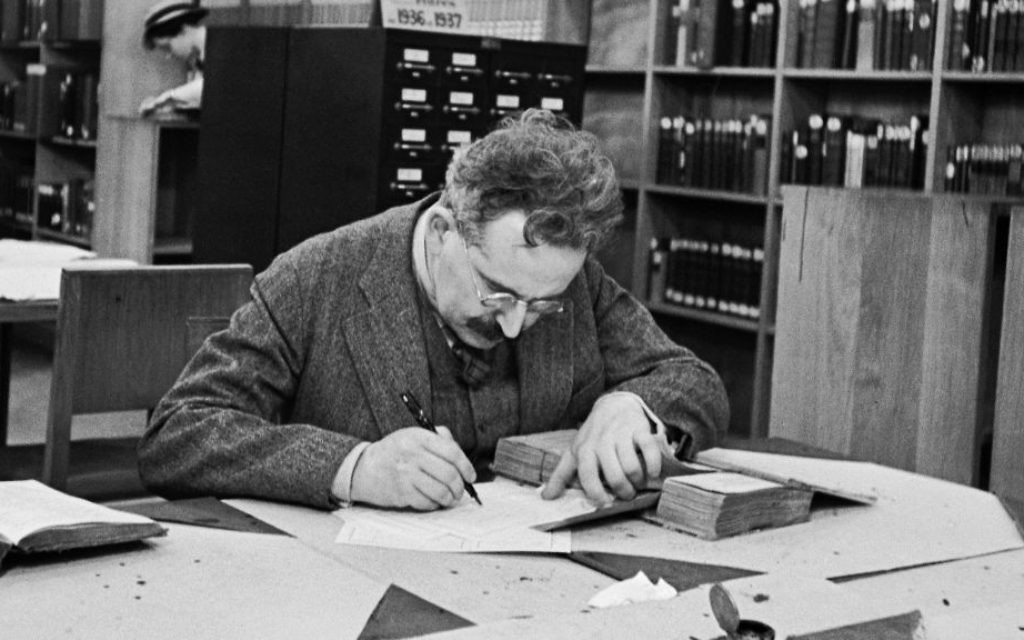
Returning to his most celebrated essay, “Critique of Violence,” while appreciating its theoretical richness, I am still nevertheless troubled by the way various scholars simply take its key terms and comport them into the 21st century as if the logics and rules for power and violence remained the same. What do you think is required in updating the critique?
That is such an important question. I think that Benjamin must be held in his own time even as he speaks to ours. If not, such a juxtaposition threatens to lose that critical distinction that for Benjamin is the basis for why the thought or materiality of one period of time can disrupt another (and vice versa). If we make Benjamin into a 21st-century thinker, then we are making him into something that he is not, and in so doing, the critical perspective that he offers us is lost as well. One example of what you are talking about that I already touched on comes from a failure to understand what Benjamin means by violence in his “Critique.” (I think a related failure is to misunderstand what he means by nonviolence too.) Another example is to think that any number of actions constitute a General Strike, which for Benjamin takes very specific — and nonviolent — form.
Perhaps an even better example is the question of what constitutes what Benjamin calls “divine violence.” He describes divine violence in the “Critique” as a way for God to reject the fetishism and mythic violence that is often projected onto or attributed to divine sources. For Benjamin, divine violence does not create new laws and truths but merely acts to remove false ones. In my view — and I’ll admit that this is hardly a settled point — it is crucial to distinguish between divine violence and any form of human agency. As I see it, if human beings themselves can be said to engage in divine violence, then that defeats the whole purpose of exposing what is mythic and what is not. If people can be said to act as agents of God, then that simply reproduces mythic violence in a new guise. (How would you know when they are acting on God’s behalf and when they are not?) Benjamin himself really muddies this distinction in the “Critique,” offering that some human activities, including education, may constitute acts of divine violence. For this reason, some thinkers such as Slavoj Žižek have offered that when the poor rise up and attack the rich they are acting as agents of divine violence. I think this is a big mistake. What I’d say instead is that people act in the wake of an opening that divine violence produces. Divine violence is, in this account, what offers human beings a chance to act in ways that are not constituted by mythic violence, that is to say, to act in ways that are nonviolent. The General Strike is an example of such nonviolence, a way to say no to the entire apparatus of mythic violence.
Despite the fact that we must, as you suggest, keep Benjamin’s concepts distinct from those of our own time, I think that there is a huge benefit in connecting his time with our own and thinking alongside him. For me, Benjamin has helped me to see the big picture even if I use different terms than he does to describe our contemporary political moment. The name that I would give to the projections from mythic externalities is archism, a basis for much of our political and economic structures today. The name that I would give to non-mythic and collective nonviolent practices is anarchism (a term that Benjamin himself often uses although he tended to call himself a communist). In my opinion, to speak of archism helps us to avoid the mistake of thinking that the state is the only form of mythic violence that matters. (If it were, then taking over the state would end the predations of mythic violence. Yet, as we have seen in history, such a takeover generally leads to a mere change in rulers.) To speak of anarchism offers us a way to think of a collective and widespread form of resistance that is not merely utopian but is already extant. In fact, I would say that for Benjamin, anarchism is a widespread practice, a form of political nonviolence that archism sits atop, claiming credit for the support and possibility of political forms that in reality it only predates and parasitizes.
In conclusion, I am taken by the already extant forms of resistance you allude to here. Despite the pessimism of the types, then as now, what I still find in Benjamin is the idea that people will resist what is patently intolerable and will try to retain something of the human despite the desperate weight of historical persecution. If Benjamin offers us a single lesson moving forward, what do you think this demands from us?
I think that more than offering us something, Benjamin actually takes away one of the great conceits that allows us to remain ensconced in mythic violence, namely the idea that “there is no alternative.” This notion, akin to what Benjamin himself calls “left melancholia,” is a kind of self-defeatism that allows leftists and those who are against violence the comfort of thinking that there really isn’t anything that they can do, that leftist attempts to avoid violence all produce results that are no less violent than fascism and that therefore we must perforce make our peace with capitalism and just do the best we can. What Benjamin shows us, I think, is not only that a nonviolent life is possible, but that it exists all around us. We are actually engaged in it already. In his view, nonviolence is just another name for daily life, for the infinite decisions, agreements, arguments, and resolutions that we all make with one another each and every day and without any recourse to law or the state. This is what I like to call the anarchist life that we are already living. Nonviolence, then, is not some pie-in-the-sky utopia but an ongoing presence that we always have recourse too. We do not need to destroy everything and then start over. Rather we must remove the parasitic and mythic overlord that rules us through its violence and its lies. The greatest deception that mythic violence has ever pulled over on us is the notion (popularized by novels like Lord of the Flies) that if the state or other archist forms were to remove themselves from our life, we would all be stabbing one another within minutes. Benjamin shows us that it is the state itself, the veritable fox guarding the henhouse, that is the source of violence in our life. We may respond to it with various acts of violence of our own, but that is only to repeat the way that we are enmeshed in a violent and mythic order.
If I thought that nothing that I did could ever lead to things being better or different then I would probably be entitled to engage in a bit of left melancholia, to sigh over how awful capitalism is and romanticize the various failed leftist assaults on capitalism’s reign. But if I knew, as Benjamin informs us, that capitalism was far more vulnerable than I thought, that I lived amid an entire network of mutually nonviolent collectivity (however much it was overlaid with echoes of state and other forms of mythic violence) then the onus is on me to actually do something about it.
I so admire the courage and clearheadedness that Benjamin displays in his last essay, “On the Concept of History.” This was written in 1940, the year of his death and a year that fascism was literally coming down all around him. Rather than allow himself into being terrified into quiescence, at the (fascist) end of history, Benjamin wrote an essay where he understood time itself as defeating the linearity of history and the sense that fascism is fated and cannot be resisted. I don’t think we are today quite where the world was when Benjamin wrote that essay, although that depends, once again, on who and where we are talking about, but we are clearly getting closer to this situation on a global scale. I hope that we can demonstrate the same resolve in our time that Benjamin showed in his. Even in the heart of fascism, he saw its true colors, its vulnerabilities, and the fact that it was never as powerful as it seemed. He was able to see mythic violence for what it is even when it ended up costing him his life. If he could do that in the face of Hitler, I hope we can do the same in the face of Trump and Johnson and the like and whomever, or whatever, is to come next.
